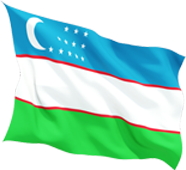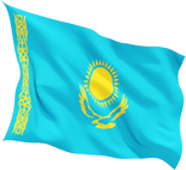At the present stage, Uzbekistan is steadily moving along the path of large-scale reforms aimed at further development of the country and improving the welfare of the people. One of the significant events in the history of the country will be the upcoming referendum on the Constitution on April 30 this year. A package of amendments, which should change the Basic Law by more than half, will be put to vote.
In the current version the Constitution has existed since 1992. The number of articles in the Basic Law is to be increased from the current 128 to 155, and the number of norms from 275 to 434, which will respectively change the content by 65%. Thus, the number and content of these changes and additions demonstrate the need to adopt a new version of the Constitution.
The necessity of the Constitution reform was pointed out by President Mirziyoyev in his inaugural speech in November 2021, specifying that such a proposal came from the people of the country. On June 20, 2022, at a meeting with members of the Constitutional Commission, the President proposed adopting amendments to the Constitution through a referendum. In the preparation of the document, more than 220 thousand proposals were received from the citizens of the country, and every fourth proposal was taken into account in the draft of the new Constitution.The amendments to the Constitution are being made in the context of the advancement of large-scale reforms in the country. In February 2017 the President of Uzbekistan approved the Strategy of actions on five priority areas of the country’s development in 2017-2021, which was successfully implemented in five stages, each of which provided for the approval of a separate annual state program for its implementation.
The five-year period of implementation of the Strategy of actions was marked by a new stage of development of our republic, conducting structural reforms in all spheres of social and political life of the country, creating conditions for ensuring comprehensive and accelerated development of the state and society, implementation of priority directions on modernization of the country and liberalization of all spheres of life.
Within the framework of the Strategy of actions on five priority directions of development of the Republic of Uzbekistan in 2017-2021 for the past period about 300 laws, more than 4 thousand decisions of the President of the Republic of Uzbekistan were adopted, aimed at radical reforming all spheres of life of the state and society. As a result of reforms in the country the political-legal, socio-economic and scientific-educational foundations necessary for the construction of the New Uzbekistan were created.
In 2022 the Development Strategy of New Uzbekistan for 2022-2026 was adopted to identify priority areas of reforms aimed at further improving the well-being of people, transforming economic sectors, accelerating the development of entrepreneurship, unconditionally ensuring human rights and interests, and forming an active civil society. The implementation of measures under this Strategy will contribute to the further development of the state and society.
In this regard, the updated Constitution unifies the people of Uzbekistan around the idea of building a developed state – New Uzbekistan, which takes into account the interests of all segments of the population. The broad public, political parties, public organizations, representatives of expert and scientific circles, and intellectuals took an active part in the drafting process.
The basis of these constitutional amendments are such values as preserving and further strengthening the independence of the country, continuing the implementation of reforms aimed at the growth of welfare and interests of the people, the rule of law and justice, attention and care for people.
In this regard, we can highlight a number of important factors in the new edition of the Constitution, which contribute to the further development of the state and society and mark a historic stage in the development of New Uzbekistan.
First, as a solid legal basis and a reliable guarantee of the long-term development of the state and society, it is indicated that Uzbekistan is a “sovereign, democratic, legal and social state”, and these principles cannot be changed. The new version emphasizes that “the Republic of Uzbekistan pursues a peace-loving foreign policy aimed at the full development of bilateral and multilateral relations with states and international organizations,” which will further enhance Uzbekistan’s image in the international arena.
Secondly, the draft law includes issues of improving the system of state power and administration, the separation of representative and executive local authorities. The powers of the Legislative Chamber and the Senate are considerably expanded, duplication in the work of the two chambers is eliminated, and their area of responsibility is clearly defined. There are also plans to give mahallas (neighborhood self governed institutions) independent decision-making powers to solve everyday problems of the population and to create the organizational and financial capabilities to do so. All this will serve to increase transparency and effectiveness of decision-making by the state power.
Third, strong social protection is envisaged, in particular, the state will assume a number of new obligations to reduce poverty, ensure employment, and protect against unemployment. Overall, the norms containing the state’s social obligations are tripled.
Fourth, changes are associated with the consolidation at the constitutional level of such issues as the organization of high-quality and qualified medical care, the development of education, the guarantee of the inviolability of private property, and the status of civil society institutions. Comprehensive environmental protection measures are envisaged as a mandatory condition for improving the quality of life and health of the population. The document establishes guarantees of personal rights and freedoms in accordance with accepted international standards.
Fifth, in the field of competitiveness of the economy and private entrepreneurship a norm is being established according to which the state guarantees the protection of property rights and related rights, and the restriction of property rights shall be carried out only on the basis of a court decision.
Free movement of goods, services, labor and financial resources is guaranteed in Uzbekistan. This creates a solid legal guarantee of stable economic growth and the free activity of entrepreneurs.
Sixth, the freedom of the media, their right to seek, receive, use and disseminate information is guaranteed. For the first time the Basic Law includes a separate chapter on civil society institutions and guarantees of their activity, which will serve as a solid basis for strengthening the atmosphere of openness, transparency and legality in society, the dialogue between the state and society, the establishment of a strong public control.
In general, all these constitutional norms correspond to the priorities of the Development Strategy of New Uzbekistan. In this regard, the upcoming referendum on the amendments to the Constitution of Uzbekistan will contribute to the continuation of large-scale reforms in the country, which create a solid foundation for the development of the state and society for the benefit of the present and future generations of Uzbekistan citizens.
Irgashev Shukhrat Bakhodirovich,
Acting Head of the Department of the Center for International Relations Studies (CIRS) under the Ministry of Foreign Affairs of Uzbekistan












